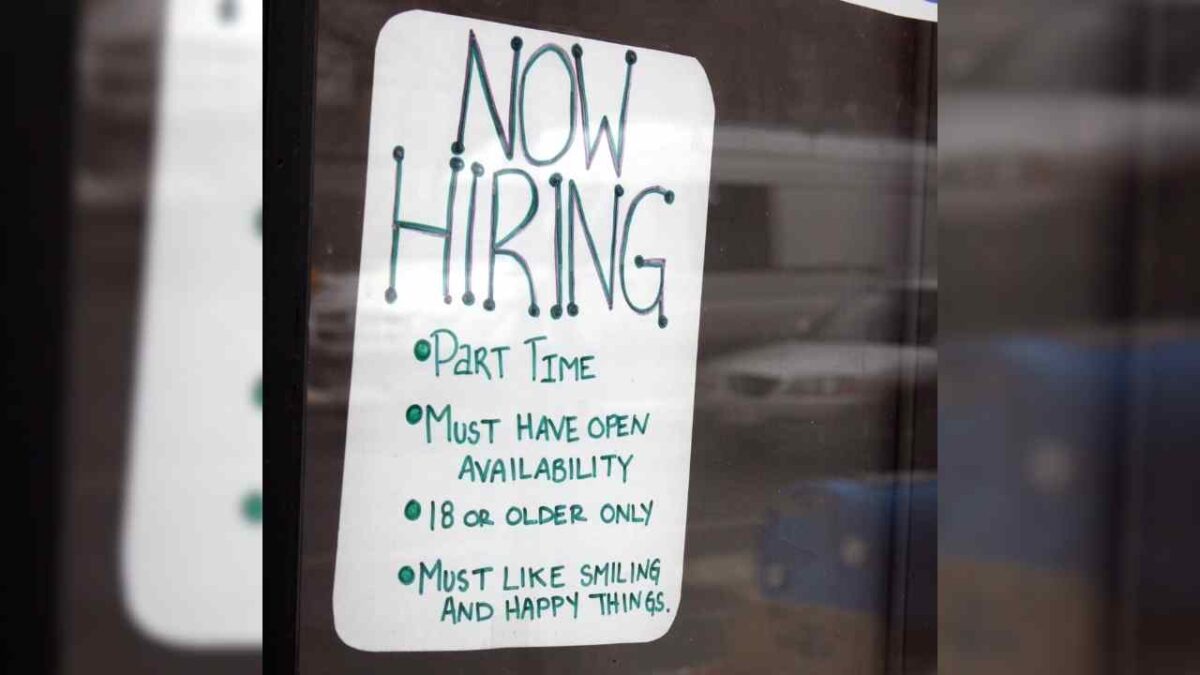Those looking for full-time work are finding it increasingly difficult to find. The number of people who could not find full-time work despite looking for it increased by 44.5 per cent between August 2023 and 2024.
The lack of available full-time employment could be the canary in the coal mine signaling weakening in the labour market, said Canadian Labour Congress (CLC) senior economist, D.T. Cochrane.
For many workers, this trend creates frustrating conditions which make it hard to get by. Oriana Delgaty, a retail worker in Ottawa, said she has been part-time at every job she had, despite requesting and being available for more hours.
“It makes you kind of question your ability to do your job,” Delgaty said.
Delgaty said she would often need to take on a second job to make ends meet. She said she grew confused when she would hear from her coworkers that management wanted more people to take on more hours, but she was not offered those hours.
Eventually her workplaces would offer more hours, Delgaty said, but it was too late because she had already committed to another job out of financial necessity.
“It can feel very unfair, like you’re not given a chance,” Delgaty said.
D.T. Cochrane from the CLC said while the social and financial harms to workers cannot be overlooked, there is also an economic impact caused by underemployment.
“If I just put on my pure economist hat, I think about all of the resources that are being wasted when we have unemployment,” Cochrane said. “When we have people who want full time work and can’t find it, this is labor that’s not being used.”
For some businesses, the choice to build a part-time labour force is a result of ongoing economic uncertainty.
Simon Gaudreault, chief economist and vice-president at the Canadian Federation of Independent Businesses, said businesses are also facing lower revenue due to reduced demand and, like all Canadians, much higher costs than a few years ago. He said the trend to take on part-time workers is a result of businesses needing to carry on with limited resources.
Liliana Camacho, director of the Better Way Alliance which aims to represent ethical employers, said the trend of mainly hiring part-time workers is likely due to an abundance of caution. However, this caution may not reap benefits for businesses in the long run.
“The Better Way Alliance has seen that investing in employees and offering full employment to workers is a strategy that works to get a business through a difficult economic period,” Camacho said. “Workers who are fully engaged in their job – thanks to pay, benefits, and culture – outperform others when it comes to customer service, product knowledge, maintaining repeat customers, and taking on extra jobs that make the business run smoothly.”
Cochrane attributes the growing underemployment to inflation exacerbated by large corporations. He said corporations with pricing power took advantage of conditions during the pandemic that upped costs for businesses.
“Because prices are rising higher, powerful companies are able to boost their profit margins,” Cochrane said. “While less powerful players are having to reduce their profit margins, more powerful players are able to actually hike their profit margins.”
As a result, the Bank of Canada hiked its interest rates to try and slow the economy, this created the economic uncertainty which leads many businesses to hire with caution.
Cochrane said large corporations need to answer for the conditions they caused, rather than letting the burden fall onto workers.
“Being underemployed is one of the worst experiences a person can go through. It’s much more than just the financial hardship that comes along with it. Working is very important to people,” Cochrane said.
“Work is also important to our very sense of self,” he added. “So for people who endure long bouts of unemployment, it is traumatizing.”



